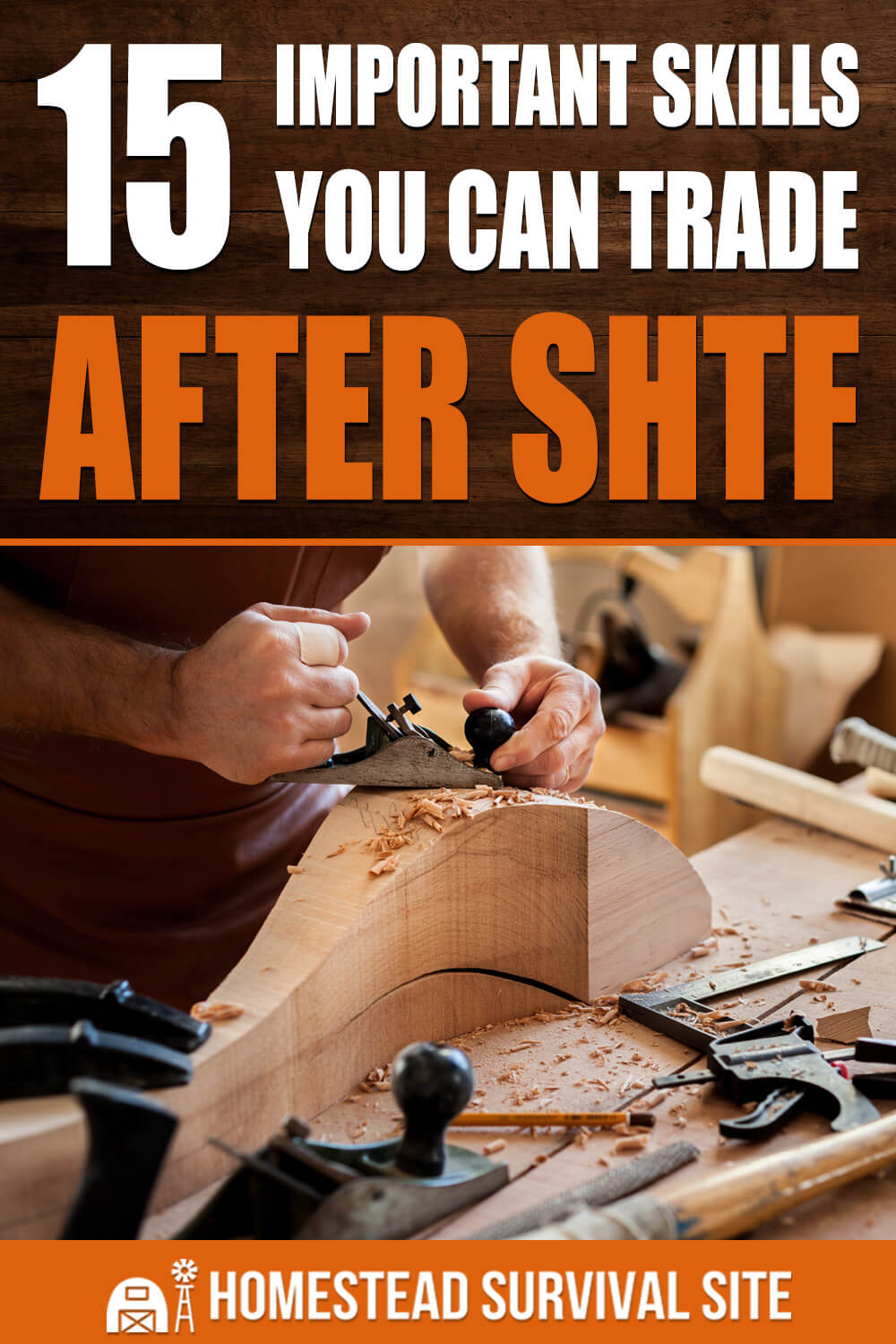[ad_1]

In this video, Sensible Prepper talks about the most important skills you can trade after SHTF.
Want to save this post for later? Click Here to Pin It On Pinterest!
1. Medicine/First Aid Professionals
This is at the top of the list for a reason. In a true WROL situation, you’re just not going to have access to professional medical help. Learning the basics about medicine and first aid will be incredibly helpful. Remember that even the smallest of injuries can result in substantial infections setting in.
2. Security
The armed security force in your group will be responsible for keeping the group safe, patrolling the perimeter, and responding to hostile forces in the area. People with a prior background in military and/or law enforcement would be best suited for this role.
3. Communications Experts
People who have knowledge and experience in using Ham radios or CB radios will be critical to helping your group communicate with the outside world.
4. Tradesmen
This includes electricians, steelworkers, plumbers, and anyone who has lots of hands-on knowledge to improvise if they need to.
5. Mechanics
Mechanics can keep your vehicles (cars, trucks, ATVs, motorcycles, etc.) up and running, and like tradesmen, they can improvise if necessary.
6. Butchers
When hunters bring in deer or elk meat, butchers can cut up and prepare the meat in a way to ensure that everyone in the group is fed.
7. Hunters and Trappers
You need to bring in meat in the first place, right? Hunters and trappers can embark out into the woods to hopefully bring in some game. Take note that this is easier said than done, especially since the population of wild game will likely be smaller in an SHTF situation. Nonetheless, it’s critical to make the effort and to rely on people who know how to track game.
8. Fishermen
Fish are an incredible source of protein and should never be discounted in a survival situation. Fishing is an art, and while anyone can use a fishing pole, people who are really experienced at this craft are more likely to make a successful catch.
9. Home Builders
These are people who understand structures and are to buildings as mechanics are to cars. Resources may be too limited to build entirely new homes, but homebuilders can still do home repairs if needed.
10. Gunsmith/Armorer
Someone who can repair broken firearms will definitely be handy to have in your group. Knowing how to reload ammunition is another critical skill that will be useful.
11. Gardeners
People who can grow crops are arguably more important than hunters and fishermen. This is because you can’t guarantee that you can bring in game, but you can guarantee that you can grow fruits and vegetables.
But as with hunting and fishing, growing crops is an art as well, and it’s important to depend on people who know what they’re doing. Otherwise, your group runs the risk of having an unsuccessful harvest.
12. Food Canners
These are people who have the ability and the equipment to can meat and vegetables to ensure they will last for months if not years. This will ensure that no food is spoiled or goes to waste.
13. Sewers
It will be very important to keep clothes in good shape since you won’t be able to go to the clothing store anymore. Sewers can also fashion blankets, pillows, and so on.
14. Blacksmiths
There is a specific science to sharpening blades such as knives, matches, axes, hatchets, tomahawks, and so on. The ability to make new knives or hatchets or other bladed tools will be of critical importance.
15. Carpenter
Finally, the role of a carpenter should never be discounted either. They can build tools, repair furniture, and so on.
For more information, be sure to check out this video from Sensible Prepper:
[ad_2]
Source link
Get more stuff like this
in your inbox
Don't Be Left Unprepared
Thank you for subscribing.
Something went wrong.



